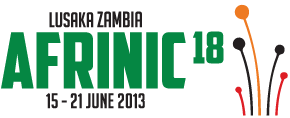 Abstract - The Role of ICT in the 21st century Tertiary Education in Africa
Abstract - The Role of ICT in the 21st century Tertiary Education in Africa Abstract - The Role of ICT in the 21st century Tertiary Education in Africa
Mankind has passed through various revolutions from the stone-age, the agricultural revolution industrial revolution and today the information revolution. One major consideration of the success of each revolution has been the ability to design, construct and maintain roads to take each product to the potential market. The first world built farm-to-market roads in the agricultural revolution and built ships and cargo planes to carry manufactured goods to distant markets. The developing world and Africa was left wanting in these two phases of global development.
Today in the 21st century, termed the information age or the information revolution, the product is information and the market is now truly global. Access to this product is through the internet. The information superhighway, as some call it, is the road of the 21st century, carrying critical business data across the world, through the world-wide-web, within microseconds. We see the first world countries enhancing their position in the world by strengthening their ICT provision. African countries are again lagging behind in the provision of this key developmental infrastructure.
Tertiary education in the Africa should be leading in the use and innovation of the use of ICT but sadly we still see students today who complete university education without every using the computer. Even though someone said “the Internet and Education are the two great equalizers”, African tertiary education is not taking advantage of the internet to leapfrog in its learning and research. Through the use of ICT, shared and open-source material available on the web, today’s students can access the best lectures across continents, from the best experts in education and industry, in the comfort of their local environments. Yet for lack of sincerity of purpose, the ICT infrastructure in most tertiary institutions is either lagging or non-existent, leaving our students, like their peasant farmer of old, still depending on their lecturers, and the limited hardcopy textbooks in their university libraries to undertake studies.
In the mist of this dark cloud of infrastructure hopelessness, there are a few universities that understand the usefulness of ICT and are deploying it in full measure. One such school is the American University of Nigeria which prides itself to be one of the most technologically advanced universities in the Sub-Saharan region with its 24/7 wireless campus, it has an array of content management and anti-plagiarism applications that are used by faculty and students. It is almost entirely dependent on an electronic library with 99.9% of e-resources as opposed to 0.1% of physical resources.
















